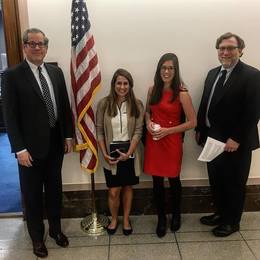Advocacy & Information Sharing
Evidence has shown the detrimental impact childhood trauma and mental health issues can have on an individual through out the lifetime. Mental health issues, including exposure to trauma, can greatly affect a child’s relationships, emotional regulation, and academic performance. This follows an individual throughout his/her lifetime, significantly impacting health, economic status, and quality of life. Evidence based mental health techniques have been proven to combat these detrimental effects, yet, despite evidence of a solution, there is still a significant gap in resources and access to vital services for children in low resource settings.
Playing to Live aims to be a leader in filling the mental health and psychosocial support (MHPSS) gap both nationally and internationally. We have witnessed the healing power of artistic expression for the individual child and his/her community, and we are committed to being at the forefront of research and practice to change the status quo and fill this gap in services for the children and communities currently left behind. We believe every child, adolescent, individual, and community has the right not just to survive but also to thrive. We believe it is important to be a loud voice for the growth in mental health support for those who need it the most.
Playing to Live aims to be a leader in filling the mental health and psychosocial support (MHPSS) gap both nationally and internationally. We have witnessed the healing power of artistic expression for the individual child and his/her community, and we are committed to being at the forefront of research and practice to change the status quo and fill this gap in services for the children and communities currently left behind. We believe every child, adolescent, individual, and community has the right not just to survive but also to thrive. We believe it is important to be a loud voice for the growth in mental health support for those who need it the most.
Advocacy
As Playing to Live continues to grow, our team has learned many lessons on where our strengths can be used and the needs within our reach. While we are a small team, we have gained recognition through our growing advocacy work including representation in important development conversations. We have learned that in order to make an impact through our programming and trainings, we also have to be champions for our work and increase knowledge and understanding for what we do.
Our advocacy work has involved speaking about the importance of MHPSS to American and international leaders in government and development, leaders from the United Nations, community members and leaders, and children and families. Additionally, we have attended a range of workshops, conferences, and international working groups to bring the importance of MHPSS work to the table. We will continue to seek opportunities to be on the front lines of policy change and advocacy.
Our advocacy work has involved speaking about the importance of MHPSS to American and international leaders in government and development, leaders from the United Nations, community members and leaders, and children and families. Additionally, we have attended a range of workshops, conferences, and international working groups to bring the importance of MHPSS work to the table. We will continue to seek opportunities to be on the front lines of policy change and advocacy.
Information Sharing
The field of MHPSS in low resource, emergency, and/or humanitarian situations is growing and currently in a critical development stage. Our team believes that we have important information to share about the impact art and play can have for children experiencing trauma and stress. We feel it is important to share the journey we have taken and the lessons we have learned along the way with our colleagues and peers. By doing this we believe we are helping build a foundation for this work to move forward. We share this information with professionals in our field, communities we work in, and academic publications.


